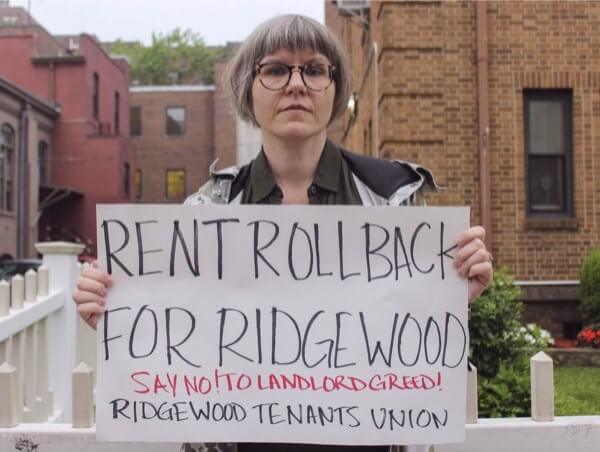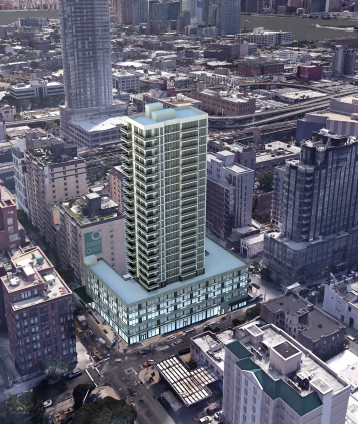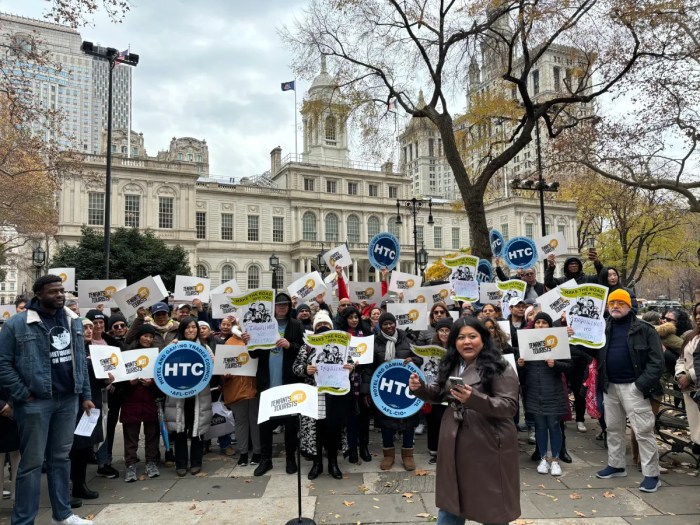By Naeisha Rose
More than a hundred tenants, advocates and community organizers from all over Queens marched from Presentation Church at Parsons Boulevard to the Jamaica Performing Arts Center at 153rd Street a few blocks away in Jamaica, to have their voices heard during a rent guidelines board meeting Monday.
They were fighting to preserve their rent-stabilized apartments out of fear of becoming homeless, or as Angelica Bohorquez’s sign read choose between having food or a home.
“Every year they try to raise the rent on the apartment 3 percent on us,” said Bohorquez, who lives with her elderly mother. “Our rent is $1,500, but with our utilities that is more than $2,000. I want a better salary, but because I’m a woman I get paid less than a man,” said the 51-year-old telephone assistant who makes $18 an hour.
The New York City Rent Guidelines Board meets every year to set rents on stabilized apartments throughout the city. As part of the process of negotiations between landords and tenants, the board holds hearings in the five boroughs to track New Yorkers’ reaction to the proposed rent increases. In May the board decided on a hike of between 1 percent and 3 percent for a one-year lease and a 2 percent to 4 percent increase on a two-year lease, effective Oct.1. This followed two years of rent freezes. The board will vote on the increases June 27.
Members of the Guidelines Board, which is made up of nine mayoral appointees, listened to testimony from 59 tenants around the borough and took notes.
Carlos Ortiz, 32, a tenant organizer for Catholic Migration Services, was representing and rallying in solidarity with the residents who came from Ridgewood.
“We are here in our capacity supporting the community as advocates in their plea for rent rollbacks or a rent freeze in the face of the decision of the Rent Guideline Board that they will be increasing the rent most likely this year,” Ortiz said. “They already chosen a preliminary range, which may vary between 1 percent and 4 percent. For most communities of color, that is a sentence for displacement, evictions, or people having to sacrifice money for food, healthcare or childcare.
Emily Waelder, an after-school teacher and resident of Ridgewood was there to stand up for her neighbors in solidarity.
“My concerns are that the people who kept our communities thriving for as long as they have are now being pushed out because somebody else expressed interest in them,” Waelder said. “People that have been calling our communities up-and-coming, when our communities have been striving for a long time, come in and reap the benefits and all the shiny stuff that was put in for a different group of people.”
One of her students is even on the brink of homelessness, when he should be focused on going to high school in the fall.
“He’s just trying to finish up the school year and he’s got to worry about a place to sleep at night. It’s frustrating to see that the city is choosing to turn its back on the people that make our city this great diverse place,” Waelder said.
Caitlin Shann, is from Ridgewood and is an advocate for tenants. She volunteers as a hot line operator at the Metropolitan Council on Housing in Manhattan.
“The Met Council is part of the Rent Justice Coalition, a coalition of 21 organizations working to make sure that we get the lowest possible increase in rent and ideally we should have had a rollback in rent this year,” Shann said.
In Ridgewood, developer AB Capstone is in the process of creating a 17-story building, and they are courting people to pay $3,000 monthly, according to Shann.
“This is going to push up all the rents and landlords who have rent stabilize apartments will be able to increase the rent so high that they are destabilized even legally,” Shann said. “There is no recourse for tenants to fight back and no one telling them they can’t do it.”
There are also developers in the southeast Queens region that are contributing to the problems for renters that want rent stabilized apartments.
“Developers are now all of a sudden interested in Jamaica, St. Albans and Cambria Heights,” said Raquel Namuche an assistant coordinator for Housing Court Answers. “They use predatory tactics like deregulate rent stabilized apartments, harass tenants and they offer tenants buyout offers.
(fixing name to Caitlin Shann and clarifying relationship between Met Council and Rent Justice Coalition)




































